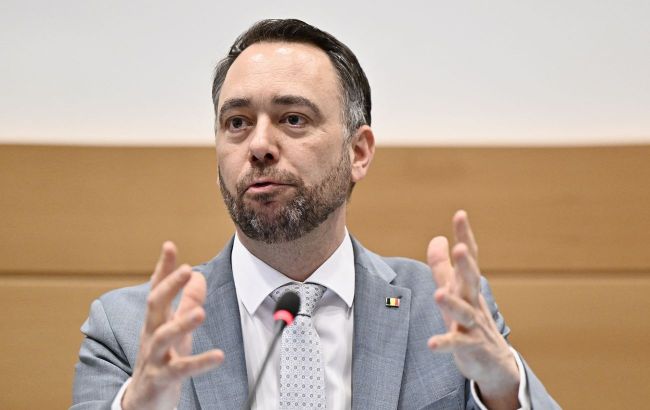Belgium will not transfer frozen Russian assets to Ukraine aid
 Belgian Foreign Minister Maxime Prévot (photo: Getty Images)
Belgian Foreign Minister Maxime Prévot (photo: Getty Images)
Belgium does not plan to confiscate revenues from frozen Russian assets and transfer these funds to aid Ukraine, Belgian Foreign Minister Maxime Prévot said in an interview with Euronews.
According to him, the confiscation of Russian assets from Belgian banks would jeopardize Belgium's reputation as a financial services center and also bring danger to the European Union.
"It would be a very bad signal to other countries worldwide. Some of them also have assets, sovereign assets in Brussels or in other places in Europe," Prévot said.
The Belgian Foreign Minister added that the confiscation of blocked assets would also undermine confidence in the euro.
In addition, Prévot rejected an alternative plan to transfer the assets into a separate investment fund.
At the same time, the minister promised that Belgium would join the security guarantees for Ukraine within the framework of the Coalition of the Willing. He did not disclose details but noted that Belgium would be able to supply aircraft to Ukraine and assist with demining.
Confiscation of Russian assets
The European Union, the G7 countries, and Australia, after the start of Russia's full-scale invasion of Ukraine, froze about 3.3 trillion euros of Russian state assets.
In May 2024, the EU approved the use of revenues from frozen assets to help Ukraine. Over the past year, Kyiv received 3 billion euros.
And since the beginning of 2025, the European Union has transferred 10.1 billion euros to Ukraine from revenues of Russian funds frozen in European banks.
At the same time, Ukraine has long insisted on the confiscation of Russian assets as compensation for the damage caused by the full-scale invasion. However, not everyone in the European Union supports such a decision.
Back in March, Deutsche Welle reported that the European Union would not confiscate frozen Russian assets due to resistance from several countries.
As is known, in Europe the biggest opponents of confiscating Russian assets are Belgium, France, Germany, and Italy. Opposing them are Poland, the Baltic states, Scandinavia, and several Central European countries. They believe that the assets should be confiscated and fully transferred to Ukraine.
Recently, Belgian Prime Minister Bart De Wever opposed the confiscation of frozen Russian assets, most of which are held in the Belgian depository Euroclear.
It is known that Euroclear holds 183 out of 300 billion euros of frozen Russian assets in Europe.

